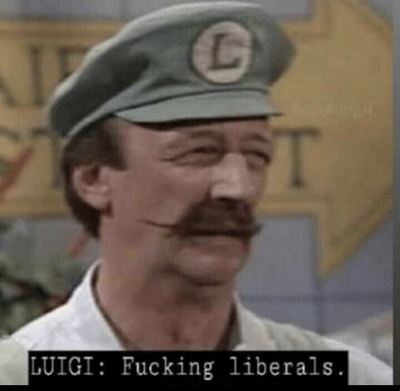Every time Gamers™ rant about pronoun options I turn on the communist mind virus nanobots to convince another western game dev to make their game woke. (Because communism is when you add a single dropdown menu at the start of the game)
Seryph (She/Her)
- 0 Posts
- 5 Comments
There isn’t a ‘Cater to children’ rule, no, but there is a blanket ‘Be respectful to comrades’ one. I’m unsure of if your replies necessarily cross that line (and I personally don’t feel they do) but I haven’t been here long enough to really get a sense for what is or isn’t permissible.
This is a Lemmygrad comm, not Hexbear
Genuinely, some of the most painful things I’ve ever read were texts written by small evangelical communities about their history and folk heroes who were doing missionary work. The way they write about the subject is just extremely uncomfortable to read. Especially when they complain about the way other christians treat them and then do the same shit to others.
Like, one was about a man who was basically disowned by his family for being in a different denomination from them. But then he fought in WW2, found others like him and built a community that came back home with him to establish their churches. Afterwards, he went to Brazil and “heroically” tried to convert people there and fight against the Catholic majority who didn’t want him there. And the text tries to imply a parallel between the isolation from being disowned, the war, and finding community to the work of a missionary. Like, he’s so isolated here but he’s fighting back against the Catholic oppression to found a new community type stuff.* Meanwhile, the book is mentioning how faithful his wife and kids were for being there to support him while he does this, and I, being someone who moved around a lot as a kid, just feel bad for them.
*(This may be slightly off but it’s how I remember it. It’s been a year since I speed-read it so some parts are a bit hazy and my entry in my reading diary for it was just a simple “fuck missionaries.” It’s safe to say I won’t be rereading it anytime soon)





I would extend this criticism to pretty much every game with an alignment system. Not the US politics part of it, since that’s very particular to Mass Effect’s brand of alignments, but the point that the choices are primarily aesthetic and very shallow.
This is because in games with alignment systems you are always encouraged in some way to stick to one side of the spectrum. Sometimes this is by rewarding players who max the alignment stat (KotOR), sometimes it’s by making it more difficult for the player to deviate from their alignment (Triangle Strategy), and sometimes it’s by punishing them outright for trying to play with both sides (Baldur’s Gate 1 & 2, kinda). This encouragement makes the player stop thinking about their individual choices. Sure, you can try to take every individual choice as a serious question and answer accordingly, but if you do the game will push back against you for doing it. The system has thus turned your choices into yet another part of your character ‘build’ instead of it being truly roleplay. You turn your brain off and let the colour decide your fate instead of engaging with the questions posited by the game. (This is especially true if it’s a Good/Evil alignment, or hell, Paragon/Renegade because that alignment is basically Good/Evil in all but name, unless you think being a fascist is good, actually)
This is then similar to the way liberals conceive of politics as ‘sides’ that you either support or don’t. The simplification of the world into easily digestible sides terminates the thoughts that might otherwise try to grapple with the actual conditions of the situation at hand and consider more complex stances and solutions. Supporting none of the present political parties/alignments is not even presented as an option outside of centrism.
Games without alignment systems avoid this issue because the lack of an easily identifiable side to support means the player must actually grapple with what they are being asked. This difference is probably best exemplified by games like the early Fallouts or Dragon Age since the choices in those games are usually binary. The lack of an alignment framework in these games despite this binary means that even a player who simply does the ‘good’ thing all the time will have to think to identify which binary choice they think is the good one instead of simply following the colour. (Note that while a lot of games with Good/Evil alignments don’t colour their choices they are still instantly identifiable since the options are ordered and the evil options are always cartoonish. My previous examples, meanwhile, have a bit more ambiguity.)
The lack of strict alignments also allows for a greater variety in choices and outcomes. This variety then allows for more interesting outcomes that might slightly subvert a player’s expectation. This in turn encourages the player to consider other possibilities beyond what the game itself is giving them. Since if your choice had some unforeseen effects then what could that other choice have done? What could you have done differently in the real world and how would that effect it? It, essentially, makes the player engage more deeply with the game’s world. Games with alignment, meanwhile, limit player engagement to the framework they provide. The player will thus either accept this framing or will try to claw against the game’s own writing and systems.
tl;dr Alignment? More like